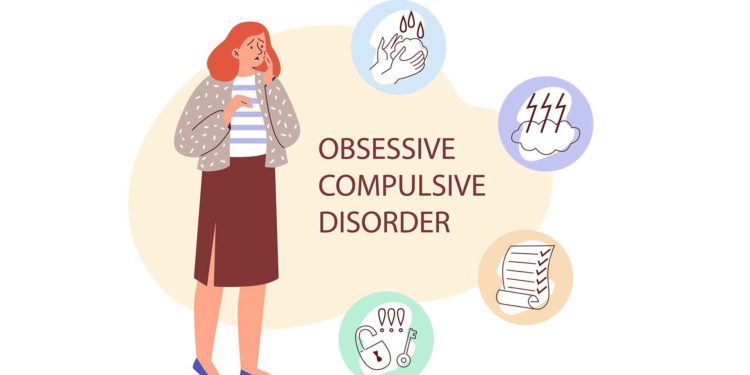Obsessive-compulsive personality disorder is a mental condition represented by a stubborn addiction to control, order, and rules. Individuals with this obsessive disorder can be extremely inelastic in their thinking and perfectionists who insist on doing things their way. In contrast to OCD (Obsessive-Compulsive Disorder), which is characterized by unwanted, repetitive thoughts and actions, OCPD is concerned with a long-term pattern of attitudes and behaviors.
People who suffer from this mental disorder frequently have a great demand for control, preciseness, and perfectionism. This can show up in their personal and work lives, posing several difficulties.
People work in an environment with several people and often see the need to interact and collaborate.
The strict need for perfection and control can cause conflict in social interactions. A person with OCPD, for instance, could have stiff schedules and expectations for doing housework, which could cause disagreements with partners or family members who might not have the same standards. Their rigidity can make it hard for them to adjust or make businesses to the demands of others, which can lead to annoyance and a sense of abandonment
Although the focus of people with Obsessive compulsive personality disorders on detail and commitment can result in excellent work, their unwillingness to assign jobs and persistence in doing things their way can be problematic. Their lack of adaptability can make them difficult to work with, which can cause tension in their relationships with bosses and coworkers.
Moreover, people with OCPD also want their surroundings to live up to their own high expectations.
If we see Individuals with OCPD generally,
They a kind of struggle to put their emotions into words and have trouble establishing and maintaining close relationships because of unrealistic standards of perfectionism or order. They Work extremely hard, although they may become slower due to their obsession with perfection because it takes them ages to fix the minute details.
There is also a possibility they could become socially isolated and feel depressed and anxious.
The Top 10 Signs of an Obsessive-Compulsive Personality Disorder

Here is what a person with OCPD has as symptoms or signs;
- Obsession with regulations, and details: this involves unnecessary and Excessive attention to small things.
- Perfectionism: An obsession with perfection that gets in the way of finishing a task.
- Workaholism: An excessive commitment to work that comes at the sacrifice of relationships and pleasure.
- Lack of flexibility: Strict observance of laws and principles.
- Hoarding: being unable to give up waste or useless goods.
- Reluctance to give: Tough to put your trust in other people to finish things appropriately.
- Stubbornness: insisting on getting things done their way.
- Miserliness: Excessive carefulness and storing money for emergencies.
- A lack of generosity: the opposition to give and share with others.
- Obsessive carefulness: Being extremely hard and careful about morals.
OCPD vs. OCD

OCD and OCPD are two separate disorders, however they are frequently confused. OCPD is a personality condition.
OCD is a condition characterized by intrusive, unwelcome thoughts (called obsessions) and a need to carry out certain behaviors (called compulsions) to calm down. For instance, an OCD sufferer could feel compelled to frequently wash their hands. OCPD, on the other hand, is a personality disorder defined by a strong-minded addiction. Unlike those with OCD, who typically realize their compulsions are illogical, people with OCPD think their way is the correct way and frequently do not view their conduct as harmful.
Since personality disorders are being discussed, it is important to understand them. Mental health diseases known as personality disorders are characterized by uncompromising and unusual patterns of feeling, thinking, and acting. These inclinations often differ from what is considered normal in the individual’s way.
Furthermore, Personality Disorders Impact the Everyday Activities of a person.
It could be difficult for the person to interact with others and deal with day-to-day issues in a way that is regular with your culture.
You may be unaware of how your attitudes and actions deviate from social norms.
You may have a significantly different perspective on the world than most people, which can make family, social, and educational activities difficult.
Managing Your Life When You Have Obsessive Compulsive Personality Disorders

Although OCPD can be difficult to live with, there are strategies for managing it. People who are in therapy for Obsessive compulsive personality disorders, especially those receiving cognitive-behavioral therapy (CBT), can identify and modify their inflexible thought and behavior patterns. CBT assists people in recognizing and altering harmful thought patterns and behaviors.
Stress can be decreased by learning relaxation techniques like mindfulness and meditation for OCPD Symptoms. Support groups and group therapy might offer extra assistance and a different viewpoint from those going through similar challenges.
Selective serotonin reuptake inhibitors (SSRIs) are among the medications that can be administered to treat symptoms.
Nonetheless, every done by an expert is highly important to better tackle the condition so that the sufferer can benefit the most.
Furthermore, Effective mental health strategies are essential for individuals with OCPD. It can be beneficial to use stress-reduction methods including progressive muscle relaxation, yoga, and deep breathing. For long-term well-being, therapy is essential for addressing underlying problems and developing coping mechanisms.

The Encouraging notes
It might be quite difficult to live with a personality disorder or OCPD Symptoms, but it is important to realize that you are not by yourself. Numerous individuals meet similar challenges and have managed to enjoy satisfying lives despite being OCPD sufferers.
Hope exists. You can control the symptoms of Obsessive compulsive personality disorders and enhance your quality of life with the correct assistance and care.
You Are Not Alone. A lot of others are going through comparable difficulties. Make an effort to connect with communities and support groups where you can discuss your experiences and receive empathy and assistance.
Keep in mind seeking professional assistance is important more than anything if things are harming your health. Mental health and therapists are available to assist you. Therapy can give you the skills and techniques you need to manage your illness and deal with day-to-day obstacles more skillfully.
Nonetheless, one of the most important things is to appreciate you and be kind to it. Despite the slow pace of progress in Obsessive-Compulsive Personality Disorder, every little step matters. Honor your accomplishments, regardless of how minor they may appear. You are already trying a lot.
Asking for assistance in OCPD Symptoms is not a sign of weakness but strength in vulnerability. It requires bravery to face your obstacles and ask for the help you require.
It’s acceptable to experience unpleasant days and to ask for support and care when things are difficult.
Even though the path of Obsessive-Compulsive Personality Disorder may be difficult, recognizing and treating your illness can pave the way for a more promising and optimistic future. Stay strong and remember that assistance and backing are at all times.












